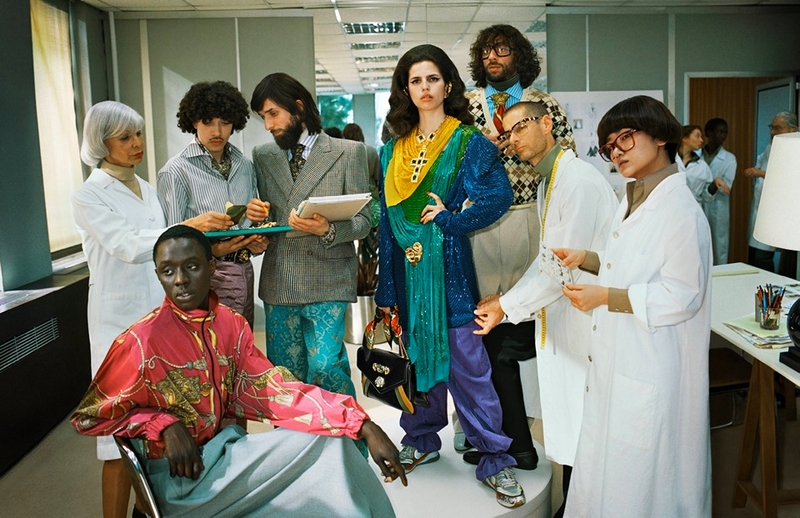
Taking inspiration from the world of designers and their muses, looking at Gucci Prêt-À-Porter. Creative Director Alessandro Michele conceives the campaign featuring the Gucci Fall-Winter 2019 collection, art directed by Christopher Simmonds and shot by Glen Luchford; @Gucci Prêt-À-Porter Fall Winter 2019-2020 Campaign;
Gucci has appointed a diversity chief as part of a drive to restore its battered reputation after it was widely criticised for its use of racially charged and religiously insensitive designs.
The appointment of Renée Tirado, who was previously the chief diversity and inclusion officer at Major League Baseball, is the latest in a series of steps taken by the Italian fashion house in response to a pair of incidents that prompted claims the problem came from a lack of ethnic minorities within the company.
In February it was forced to withdraw an $890 (£689) balaclava knit, part of the autumn/winter 2018 collection, which covered half of the wearer’s face and featured a cutout mouth with large red lips. Critics said that the polo neck, which was released during Black History Month in the US, resembled blackface.
In the same month, the Milan-based brand announced it would hire global and regional directors for diversity and inclusion, as well as launching a multicultural design scholarship programme, a diversity and inclusion awareness programme and a global exchange programme.

But in May Gucci was again under fire again, this time for a £790 headpiece that resembled a turban, a piece from the same collection as the balaclava. The US-based Sikh Coalition said on Twitter that the turban is “not just a fashion accessory, but … also a sacred religious article of faith”.
In a video released on Tuesday afternoon, Tirado said that part of her work will be “bringing new conversations in”, such as: “How are we doing with the workforce diversity agenda? How can we bring more diverse people into not only Gucci, but the vmore broadly? How do we provide a level playing field for those new employees to compete and be the future leaders of the industry?”
Her work will also, she said, be building on existing initiatives, such as the Changemakers programme announced in March, a “community fund and scholarship programme for North America alongside a global volunteering programme”.
In a statement, Gucci’s CEO and president, Marco Bizzarri, said: “This appointment is a fundamental building block to further our commitment and support the initiatives already in place … I am confident that Renée will help us create the meaningful change we want to see not only in our company but in the fashion industry.”
Gucci is not the only fashion house to have come under fire for racism. In December 2018, Prada prompted outrage when it featured monkey-like figures with big red lips in the window of one of its New York stores. The Italian fashion label announced at the time that it would set up an advisory council on diversity issues, of which filmmaker Ava DuVernary is now co-chair, in a bid to learn from this and “do better”.
Last November the Italian brand Dolce & Gabbana postponed a show in Shanghai having been accused of racism over a promotional video that showed a Chinese model eating Italian food with chopsticks. Gucci is also not the first to devote more resource to tackling diversity issues: earlier this month Fiona Pargeter was announced as Chanel’s first global head of diversity and inclusion.
Tirado, who will be based in New York, believes that fashion “can really be a thought leader across the diversity and inclusion conversation,” which, she thinks, “can influence all industries across the board if we do it well”.
She said she hoped that Gucci was in a position to make significant change. “I think Gucci has set the foundation of what it looks like to do it well. You have the leadership that was brought in, you have the employees that have an appetite for it, and you have the investment across the board … Gucci is going to give me the resources to build out a team globally.”
The announcement of Tirado’s appointment came the week after Kering released its latest set of earnings in which Gucci, the brand on which the luxury conglomerate relied for about 60% of revenue and 80% of last year’s profits, had grown more slowly than was expected. The blackface balaclava, along with other factors such as a strong dollar, are reported to have had a role in its diminished performance.
guardian.co.uk © Guardian News & Media Limited 2010
Published via the Guardian News Feed plugin for WordPress.

